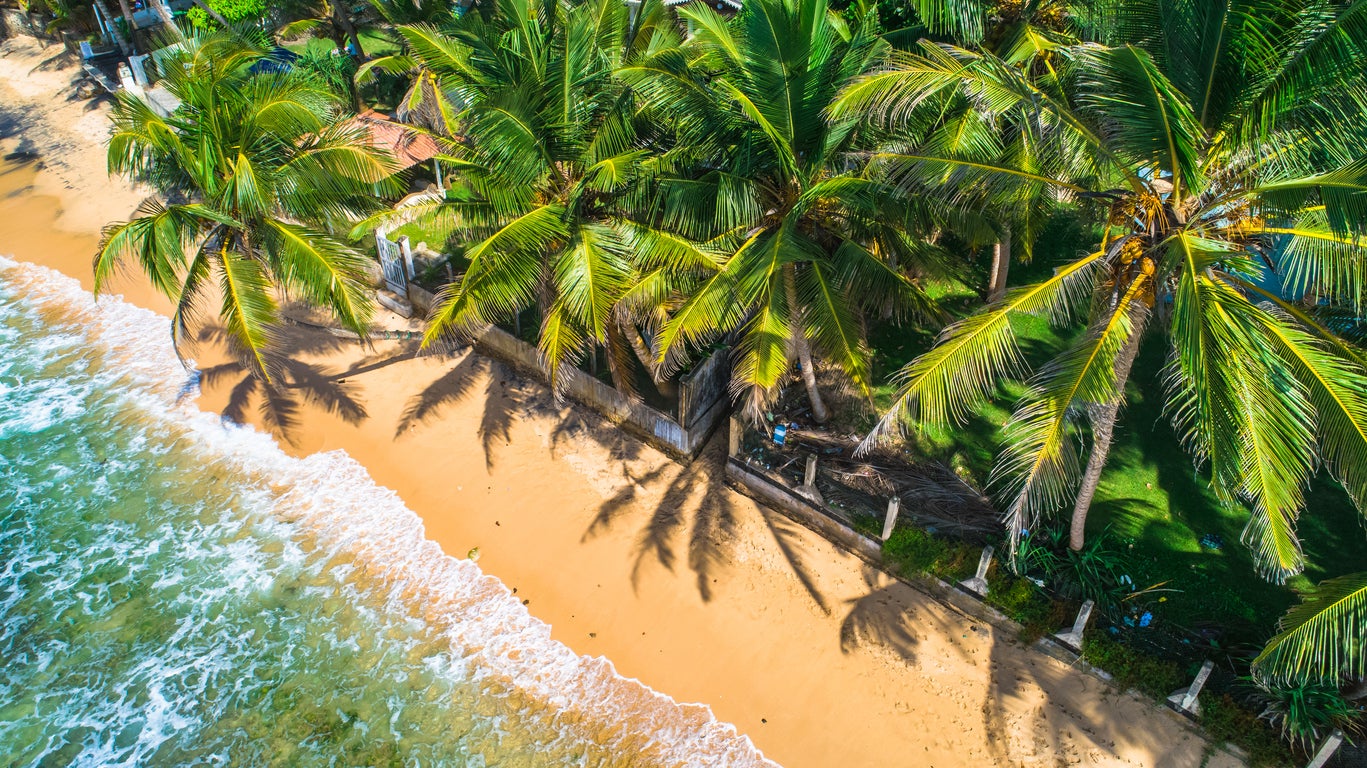Foreign Office lifts ‘all but essential travel’ warning for Sri Lanka
Travelling to a country against FCO advice can invalidate your travel insurance

Your support helps us to tell the story
From reproductive rights to climate change to Big Tech, The Independent is on the ground when the story is developing. Whether it's investigating the financials of Elon Musk's pro-Trump PAC or producing our latest documentary, 'The A Word', which shines a light on the American women fighting for reproductive rights, we know how important it is to parse out the facts from the messaging.
At such a critical moment in US history, we need reporters on the ground. Your donation allows us to keep sending journalists to speak to both sides of the story.
The Independent is trusted by Americans across the entire political spectrum. And unlike many other quality news outlets, we choose not to lock Americans out of our reporting and analysis with paywalls. We believe quality journalism should be available to everyone, paid for by those who can afford it.
Your support makes all the difference.The UK’s Foreign Office (FCDO) today lifted its warning against “all but essential travel” to Sri Lanka.
From 16 May until Friday, the FCDO’s advice for Sri Lanka had been: “The Foreign, Commonwealth & Development Office (FCDO) now advises against all but essential travel to Sri Lanka, due to ongoing political and economic instability.”
The removal of this statement means holidaymakers can once again book trips to the Indian Ocean island without fear of their travel insurance policies being invalidated.
The warning was put in place in mid-May following a series of violent clashes and protests in the face of a nationwide economic crisis.
A state of emergency was declared in Sri Lanka on 6 May; the following week, protesters set fire to homes and businesses belonging to ruling party lawmakers and politicians. Eight people died in the unrest and more than 200 were injured, according to local police.
The violent clashes led to the resignation of the prime minister, Mahinda Rajapaksa, on 9 May. Along with his brother, the president, Mr Rajapaksa has been blamed by many for plunging the country into its worst economic crisis in decades.
As a result, a curfew was put in place, though many tour operators advised clients to finish their holidays as planned.
Package holiday company Tui then cancelled all of its Sri Lanka holidays up to and including 31 May 2022.
Yesterday, the UN launched a “Humanitarian needs and Priorities” plan calling for US$47.2m (£38.2m) in aid for some 1.7 million people worst hit by the crisis.
The Foreign Office does continue to warn travellers about economic conditions on the island, saying: “The economic situation in Sri Lanka is challenging with shortages of basic necessities including medicines, cooking gas, fuel and food because of a shortage of hard currency to pay for imports.
“There may be long queues at shops and supermarkets, fuel stations, and pharmacies. There may be difficulties or delays obtaining taxis and other public transport. There are ongoing daily power cuts due to electricity rationing.
“There have been a number of protests since 31 March 2022. There have been incidents involving violence against peaceful protesters resulting in injuries and loss of life. Security authorities have used tear gas and water cannons against protesters. There are ongoing protests in the Galle Road, Galle Face and Fort areas of Colombo. Further protests are likely to take place across the island.”
Sri Lankan travel specialists say tourism will be welcomed on an island that was hit hard first by the pandemic travel shutdown, then the present economic crisis.
Sam Clark, the founder of Experience Travel Group, says: “It is fantastic and very welcome news that the FCDO has lifted the advisory against travel to Sri Lanka.
“With the new government in place, this is a moment of hope for Sri Lanka. The situation is far more settled than in March and April when we successfully arranged many holidays.
“Tourism is the critical route through the crisis long term bringing in an average of $183 (£149) per person per day in much needed hard currency.
“This move means UK travellers can enjoy the outstanding hospitality, incredible scenery and glorious summer weather while local livelihoods will be protected.”
Join our commenting forum
Join thought-provoking conversations, follow other Independent readers and see their replies
Comments